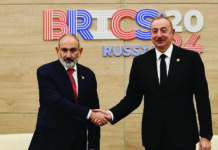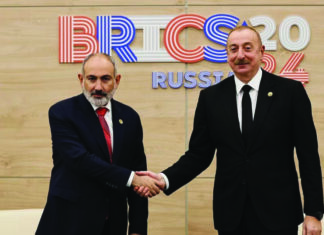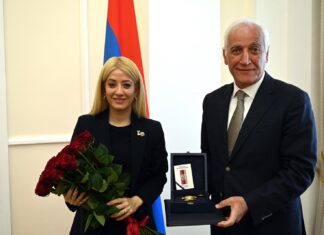By Philippe Raffi Kalfayan
Special to the Mirror-Spectator
This article is being written during a constantly-evolving diplomatic time, making the prospective analysis difficult. International politics has deteriorated considerably over the past 10 years; it is marked by the deepening economic and military competition between the great powers at the expense of multilateralism. This reality translates into rearmament strategies, the increasing lack of restraint shown by certain regional powers and a growing number of hot-spots, as the French Chief of Defense staff wrote in a report in October 2021.
The cynical calculations of global or regional powers are limitless. International law counts for very little compared to other strategic instruments of power: military, information, economics, technology. The analysis below does not focus on Armenia’s current domestic political problems, or on the possible clash between the homeland and its diaspora. The four leaders of the country since its independence in 1991 have all failed to build a doctrinal and coherent foreign policy, especially in relation to Nagorno-Karabakh’s right to self-determination as well as Armenia’s relations with Turkey.
The radically new directions observed under the current haphazard and ultimately useless frenetic diplomatic activity in Armenia, while the country is weaker than ever, may in such circumstances expose the entire nation to danger. Faced with increasingly emboldened neighbors, and noting that the law is not an effective remedy, Armenia needs to elaborate and implement a new legal-diplomatic paradigm.
I – Artsakh’s Self-Determination: An Uncontrolled Process?









